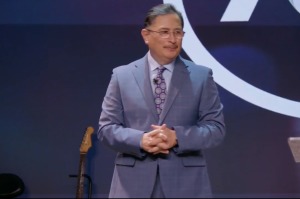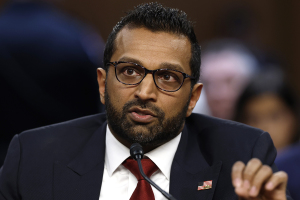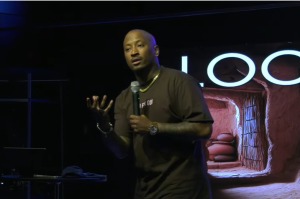Influential, Controversial Theologian Clark Pinnock Dies at 73
Theological conservatives and liberals alike this week mourned the loss of influential and controversial theologian Dr. Clark H. Pinnock, who died this past Sunday from a heart attack.
He was 73.
As a teacher at New Orleans Baptist Theological Seminary back in the 1960s, Pinnock had directly influenced a number of notable Southern Baptist leaders including Paige Patterson, Jerry Vines, Adrian Rogers.
And many of those leaders, in turn, influenced others.
"[T]he gospel I believed came through preachers who were trained by Clark Pinnock," recalled Dr. Russell D. Moore, dean of the School of Theology and senior vice-president for Academic Administration at The Southern Baptist Theological Seminary. "More than that, the nation's largest evangelical denomination would never have turned back to biblical inerrancy had it not been for a man who would later reject the concept."
Back in the 1960s, Pinnock presented a strong case to his students for the complete truthfulness of the Scriptures, concerned that Southern Baptists were sliding into theological liberalism like other Baptists before them. He also presented an overall narrative of God's work in Christ Jesus that many students reportedly found compelling.
In the 1970s, however, Pinnock began to question his previous understanding of biblical inspiration. Among the beliefs he came to hold was that evangelicals should unite around our common commitment to forgiveness through the "shed blood of Jesus Christ" rather than around a common understanding of Holy Scripture.
Over time, the Canadian theologian moved from doubting the verbal inspiration of Scripture to questioning the long-standing traditions of Christian orthodoxy from almost every vantage point.
"He led the short-lived movement toward 'open theism,' questioning the historic church's belief that God knows everything, including the future free decisions of his creatures," recalled Moore.
"He abandoned his belief that conscious faith in Christ is necessary for salvation, and began to see the Spirit at work in the other world religions. He denounced the concept of everlasting punishment as cruel and contrary to the nature of God. Unhinged from Scripture and tradition, Pinnock became the vanguard of evangelical innovation on doctrine after doctrine after doctrine," Moore added.
Still, Moore expressed gratitude "for the good things God did through him" and encouraged his fellow believers to do the same.
Also testifying to Pinnock this week was Greg Boyd, senior pastor of Christus Victor Ministries (CVM) in St. Paul, Minn., who similarly shared about how he "and multitudes of others are deeply indebted to this humble scholar."
"Through his writings, teachings and personal relationships, Clark impacted more lives than he could have imagined," Boyd commented Monday after receiving word of Pinnock's death.
The fellow "Open Theist" said what he appreciated most about Pinnock was "his epistemological humility and intellectual integrity."
"To the chagrin of many who consider themselves the guardians of (what they define as) orthodoxy, Clark was always willing to reconsider long-held views," Boyd recalled. "Indeed, Clark was one of those exceptionally rare academics who are humble enough to publicly admit when they've changed their mind about a matter. While I happen to agree with Clark on many (but not all) of the particular theological conclusions he arrived at, it was the humble and gracious way Clark thought and conducted himself that most impressed me."
After teaching at NOBTS from 1965 to 1969, Pinnock went on to teach at Regent College in Vancouver from 1974 to 1977, and ultimately at McMaster Divinity College in Hamilton, Ontario, where he last taught before retiring.
In a statement regarding Pinnock's death, McMaster President Dr. Stanley E. Porter remembered Pinnock as a "beacon of evangelicalism" and "one of the most creative and productive scholars of his generation."
"New and challenging ideas were clearly not a threat to Clark, but he continued to re-invent himself and his theology as he interrogated and rethought the major theological issues of our time," Porter remarked. "This is something that few theologians are able to do, and even fewer as well as Clark did."
According to Porter, Pinnock continued to teach summer school courses at the college until 2009, months before announcing that he had Alzheimer's disease.
After the announcement in March, Pinnock withdrew from public life, returning to the fore only in death.
A funeral service for Pinnock was held Wednesday at the Little Bethel Community Church in Hamilton, Ontario, where he was a member.
Among the books he wrote are A Defense of Biblical Infallibility, New Reformation: A Challenge to Southern Baptists, The Openness of God, and Most Moved Mover: A Theology of God's Openness.



























